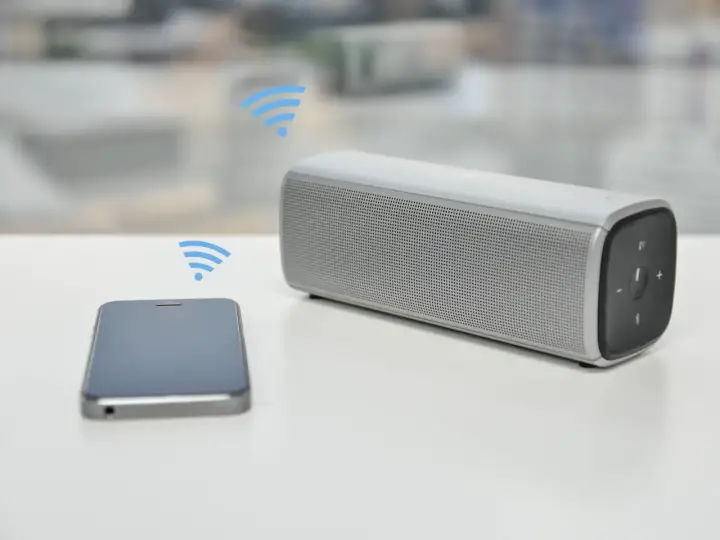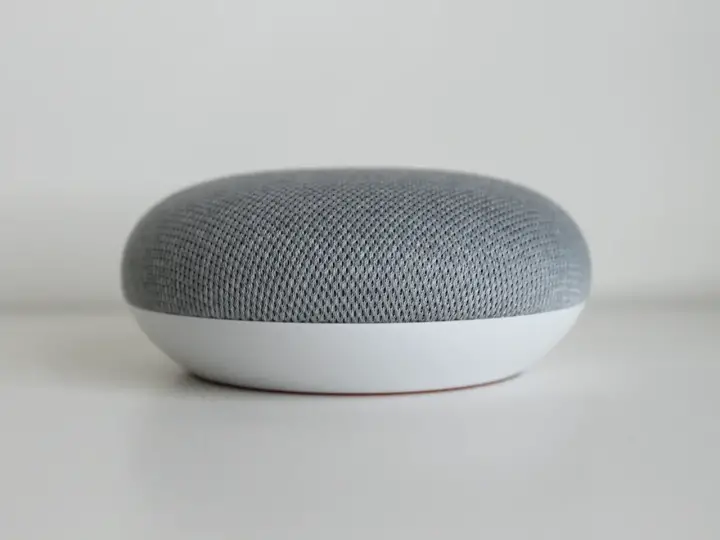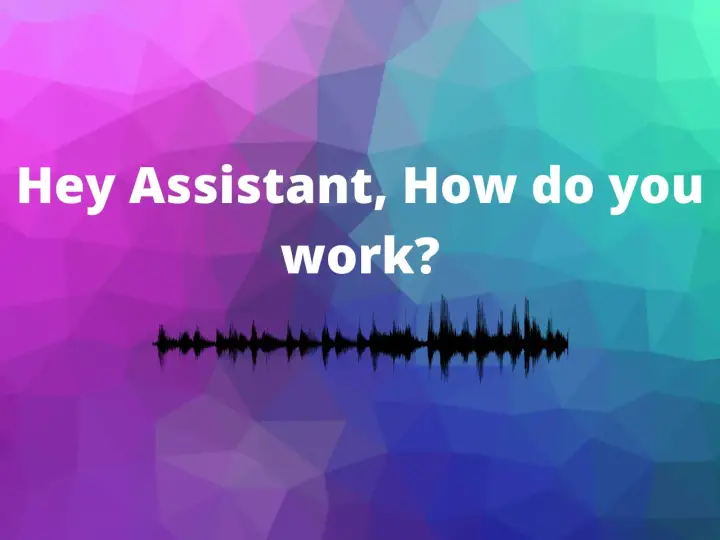How to Listen to Music Offline With Smart Speakers
Updated on 7th Jan 2021 17:33 in General, Smart
Smart speakers are quite common now, and as more people start using one, they will have many questions. They may wonder what the features are or how loud the volume can get. Most questions have obvious answers, but here we will see how you can use a smart speaker without an internet connection. You'd think any speaker would work just fine, but things are unfortunately not that simple. We will find out which smart speaker is the best for offline use along with the pros and cons of each!

Table of Contents
Can you listen to music on a smart speaker without internet?
As a general rule, the HomePod, Alexa, and Google Home speakers are all capable of playing music without a connection to the internet in some capacity. The Alexa and Google Home will act as Bluetooth speakers when they are offline. HomePod, on the other hand, will continue to work as an Airplay device, which enables music streaming via WiFi. While they might work, keep in mind they must have an internet connection to be initially set up. You can't use any of the smart speakers to listen to music without setting them up first!
Listening to music is obviously an important aspect of a smart speaker, and for the most part, you can continue to use these speakers when they are offline. There are a few key differences, though. For one, none of the voice assistants will work, meaning you can't use any voice commands to queue a song. Next, it might seem obvious, but with streaming services like Apple Music and Spotify, an active internet connection is required to play any music. If you plan on listening to some tunes while offline, be sure to download them locally onto your phone!
Finally, note the difference between the speakers that use Bluetooth and the HomePod which uses Airplay. For the most part, there is no difference, but Airplay does not work without WiFi! In a pinch, you could always use a hotspot from your phone though. In the absence of an internet connection, Alexa, Siri, and Google Home will stop responding to most commands. Later, we will see what can be used while each of these devices is offline, but the summary is not a lot!

Are WiFi and an internet connection the same?
This quick aside is to clearly separate these two concepts as many people confuse them. While many people use these two terms interchangeably, they are actually two very different things. WiFi does not stand for anything and is a wireless data transmission standard used mostly for local networks. An internet connection is a data transmission medium that connects your local network to millions of others. When your ISP (Internet Service Provider) sells you a connection, they will then connect you to their massive network which is actually quite similar to the one in your home, just a lot bigger.
The term "Internet" is often used as if it refers to a single thing. It is actually describing a web of interconnected computers that use the connection to exchange information. This term ignores all the underlying complexity of a network that includes almost every country on the planet and transfers hundreds of terabytes per second every day. As such, they are both networks with the difference being that WiFi typically refers to a network that only reaches within your home while the internet connects everyone together. That's why we often talk about controlling your devices locally over WiFi as then the information never leaves your home.
What is the best offline smart speaker?
None of the available speakers are completely offline in any way, so right from the start, the question is about which speaker can do the most while offline. There are several factors we will consider when evaluating which speaker works the best offline. Your actual priorities might be different, but the following categories are what we feel like the most important in a smart speaker.
- The ability to stream music as usual
- The ability to control smart devices
- Does the voice assistant to work?
Below is a summary of each speaker, along with its score in each category. In the next section, we will take a detailed look at each speaker to understand more about their limitations.
| Speaker | Offline music | Offline smart device control | Offline voice assistant |
|---|---|---|---|
| Alexa | Yes (Bluetooth) | Yes (only hub/Zigbee versions) | Yes (only basic commands) |
| Google Home | Yes (Bluetooth) | No | No |
| HomePod | Yes (Airplay via WiFi) | Yes | No |
From this table, the choice doesn't really become clearer. Each speaker can play music, but things fall apart when trying to control smart devices. Even though Siri won't work offline, the HomePod is the victor as it can control smart devices offline without caveats. Just keep in mind you can't use Siri to issue those commands!
What can Alexa do offline?
Everything in this section assumes the device has already been set up using an active internet connection before it went offline. There are a few things Alexa does better than the rest, offline voice control being one of them. It is extremely limited to the point that some wouldn't even consider it useful, but it does allow basic control of your smart home. Each ability listed below will continue to function once the internet goes offline.
- Play music over Bluetooth
- Control local smart devices (only for Echo Hubs!)
- Respond to basic voice commands such as:
- The current date/time
- Control switches, lights, and plugs
- Stop or cancel alarms, reminders, and timers
- Control the device's volume
In addition to the above list, you can ask Alexa "What can you do offline", and she will respond with a helpful list of what you can do while she is offline. Keep in mind that most of these functions are only present in an Echo Hub device which has a smart home hub built-in. Regular Echos will not be able to control connected smart devices.
What can Google Home do offline?
Everything in this section assumes the device has already been set up using an active internet connection before it went offline. Google Home currently has little to no support for offline control, but they moved to change that in early 2020 when they released the Google Home local SDK. This allows developers to directly hook into the Google Home system, which avoids a trip to the device manufacturer's cloud servers. Unfortunately, as it stands, it seems that this system still relies on accessing Google's cloud system.
That does mean that without an internet connection, Google Home will not respond to commands or be able to alter the state of your smart home. When a Google Home is offline, it can do the following.
- Play music over Bluetooth
Currently, the Google Home is quite useless when offline as none of the voice commands will work nor will smart devices be controllable. This is because the Home is not really a hub and instead is more of a control panel that allows your commands to be sent to the right place. The new SDK is a great move to reduce the possibility of a manufacturer outage affecting you, but it sadly does not help with the device's offline functionality.

What can HomePod do offline?
Everything in this section assumes the device has already been set up using an active internet connection before it went offline. You may already know that HomeKit is a smart home protocol designed to operate completely on your local network. For a manufacturer to say that their product is HomeKit compatible, they must provide a way to control it offline. This means that you can still control everything as normal while connected to the same WiFi network as all of your devices. That does not mean that HomePod will continue to work perfectly, though. The biggest difference is that Siri will not work offline. When a HomePod is offline, it can do the following:
- Play music over Airplay (WiFi)
- Continue to act as a HomeKit hub
Those two elements are typically seen as the biggest features of a HomePod other than Siri, so for the most part, things will continue to run as usual. Keep in mind that Siri will not work when you are offline, which is different from Alexa, which has a few limited commands available. All HomeKit devices can still be controlled, but you will have to use the Home app rather than Siri.
Why don't voice assistants work offline anyway?
You may be wondering why don't any of these voice assistants work offline? The question is quite valid considering the fact that computers are everywhere. In the case of a device like a HomePod or an Echo, the problem comes from limited processing power. As you may know, a computer's performance is almost always directly correlated with its cost. Since smart speakers aren't being sold for thousands of dollars, you can start to see that their processing power is quite limited. In fact, most voice assistants could not run directly on the hardware in your smart speaker if they wanted to.
The processing involved in performing speech analysis and synthesis is actually quite amazingly demanding. As a practical example, take a look at my Mycroft offline project where I run all the components of a voice assistant locally. When I tried running the software on a Raspberry Pi, it would sometimes take up to 30 seconds for the assistant to answer me! It was only when I ran the program on my desktop computer that it finally worked in a reasonable time. The desktop is equipped with a 1000$ Nvidia graphics card which assisted the processing. That starts to put things into perspective regarding the kind of hardware these data centres are using.
Another problem is the massive amount of data a voice assistant needs to store to perform its regular function. Companies like Apple and Amazon have used millions of audio clips from all their customers to create an accurate recognition model. All of that data needs to be stored somewhere, which is another barrier to making a totally offline voice assistant. A final question to ponder is why companies make these services available in the first place. Thinking about how much Alexa probably costs to run should raise questions about why the service is free to use after buying a 30$ device. In any case, offline assistants are likely to be quite expensive at first.



